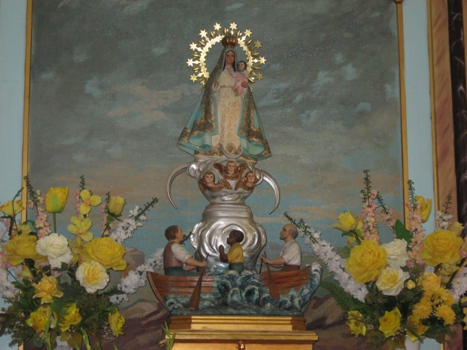
One year goes out and another comes in while the exact classification for much “unfinished business” in the excessively long Cuban dictatorship fail to get a mention. And as if that weren’t enough the well-known major doubts — those that relate directly to the old yearning for freedom, democracy and human rights, as necessities that ever more Cubans demand — the regime still owes us answers to specific issues that arose, in the complex national life, in the year just ended.
For my part, I can’t help but remember that soon it will be one year since the tragic death of dozens of mentally ill patients at the Havana Psychiatric Hospital, known as Mazorra, in subhuman conditions and circumstances that have never been clarified, despite official announcement of “a commission to investigate the facts.” Of course, like all commissions here, this one is anonymous.
Curiously, the unfortunate crash of an Cuban Aerocaribbean plane in the center of the island in which 68 people — mostly foreign tourists — lost their lives in the last quarter of 2010, has already been investigated and explained, with the results published in the national press. True, the sad lunatics of Mazorra were all Cubans, which could be a determining factor in this case: the crazies are of little interest to anyone; and if, in addition, they are national crazies, they seem to be unimportant even to Cubans who indifferently pass by, believing they enjoy mental health. The average Cuban suffers from a ferocious amnesia… about anything that doesn’t affect him directly; so the government maintains the right to continue, without the slightest embarrassment, its display of solidarity on health care with other countries in the world, and what’s worse, it continues to be praised and recognized by international organizations which, it seems, are as insensitive and amnesiac as the people here.
The other matter pending which I want to refer to today is the release of the political prisoners of the Black Spring who remain imprisoned after the unmet commitment by the dictatorship to the Catholic authority and, thus, to Cubans. These are the prisoners who have refused to leave the country, those who reject exile, those who will not surrender. Everything indicates that the Cuban government, like the senior Catholic hierarchy on the Island and the brand new mediator of the occasion — the Spanish government — have agreed to to cover the unjustified prolongation of the euphemistically called “process of liberation” with a pious mantle, take a break, and quietly celebrate their Christmas: undoubtedly 2010 turned out to be, for them, a tremendously hectic year from the political point of view. The cardinal, for his part, had the kind charity to officiate at a mass in La Habana prison, Merry Christmas! It must be an almost burlesque phrase in that place. Perhaps the anointed also trust in the enduring Cuban amnesia will exonerate them of all charges. Or perhaps they have been infected with the same disease?
January 4 2011
